|
Here is the speech given by
Douglas at the Award dinner...
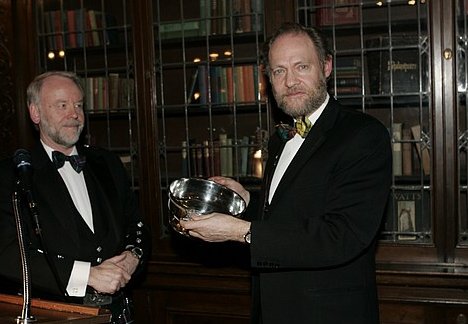
And receiving his Award from David Hunter,
President of the Scottish Studies Foundation
Thank you very much indeed,
Alastair.
I'll have more to say later
about the kind things that you've heard from His Honour, my distinguished
author James Bartleman, and Alistair MacLeod and Alice Munro.
But first, let me welcome you
to this very distinctive building, Casa Loma. As you may know, an
architecture critic once described Casa Loma as a blend of 16th Century
Scottish Baronial and 20th century Fox. And as for tonight’s event here, I
must tell you that I’m very suspicious of any event chaired by the Reverend
Malcolm Sinclair, surely the most irreverent reverend in captivity. In
January I was giving a speech at the St. Andrew’s Society, and I apologized
to the table behind me, that they could only see the back of my head. “They
specifically requested that table!” shouted Malcolm. .
I’d like to start with an
apology. On this fine Scottish evening, with colourful tartans and kilts
everywhere, I seem to be letting down the side with this conventional dinner
jacket. In fact this is perhaps the most Scottish outfit of all those here
tonight. It was given to me by my very Scottish parents as a 21st birthday
present in the hope that I would save money in the long run. That was forty
years ago.
Durability was an important
consideration to my parents when they were buying anything. Once, in middle
age, they were considering the purchase of a carpet and asked if it would
wear well. The young salesman looked at them up appraisingly and then said:
"oh aye -- it'll see your day out!"
They bought the carpet! And
my mother, at 91, in Dunlop, the Ayrshire village where I grew up, continues
to take the race between her and the carpet very seriously.
My mother can't be here
tonight, so she has to be content with telling everyone who encounters her
on the street of this great honour that has befallen her son in Canada, as
if she’s been waiting 91 years for precisely this event. But it's great that
so many members of my family are here tonight. But I'd like to single out
Jane, of course, who when we got married three years ago was struck by the
fact that my friends in Scotland and Canada all used precisely the same
phrase: "you're a brave woman" when greeting her. I can’t understand it
either. I'd like to greet her mother, Louise Brenneman, born a Gibson -- but
it's alright, they were a branch of the Gibsons driven out to Orkney for
sheep-stealing before being driven out once again to Upper Canada, where the
absence of sheep meant that they mended their ways. And I'm delighted that
my daughter Meg is here with her partner Lauren -- it's too bad that other
commitments keep baby Lindsay away tonight just as McGill Law school exams
have kept my younger girl Katie away.
My thanks, too, to all of you
colleagues and friends from McClelland and Stewart, led by the chairman Avie
Bennett, and by my successor as President and Publisher there,
Doug Pepper. In
addition to Alice Munro and Alistair MacLeod, Roy MacGregor is also at the
M&S table, all the way from Ottawa, and if any of you have children over 8
they’re likely to be really impressed by the news that you saw the author of
the Screech Owls series, and may ask if you got an autograph, or even
touched him. My thanks also to my colleagues at the St. Andrews Society, and
to all of you, friends old and new, for coming out tonight, honouring me by
your presence, and raising funds for an excellent cause, about which you've
just heard. I'm sorry, Michael Enright, that I can't mention all of you by
name and rank, but you all know who you are. And I must say that looking out
here now is very much like drowning is reputed to be – all of my past life
is flashing before my eyes.
You've heard a little bit
about my publishing career tonight. One of the highlights was publishing The
Canadian Encyclopedia in 2000, the biggest single volume in Canadian
history. I think you'll enjoy the entry on Scots in Canada. It reads, in
part: "the history and culture of Scots developed quite differently from
that of other groups from the British Isles, and Scots have always regarded
themselves as distinct from -- indeed superior to -- their English, Welsh
and Irish cousins."
This presumably is the same
self regard that led so many of us to consider the bestselling book title
How the Scots Invented the Modern World as being a touch understated and
perhaps overly restricted. That account of 18th-century Scottish rationality
and the belief in how education and ambition can break the bonds of
tradition in search of a healthy meritocracy is made even more relevant to
us tonight by a thought-provoking quote from the Canadian playwright Kent
Stetson. "The Enlightenment produced different results in different European
countries; in France it produced the Revolution. In Scotland it produced . .
. Canada."
We have my old employer and
colleague and friend Avie Bennett, the chairman of the board of Historica,
here tonight, along with George Goodwin and Valerie Jacobs, so I'm sure
you'll allow me a little flight into history here.
It's fascinating to take the
concept of the Canadian Scot of the Year back into Canadian history and
award it posthumously. In 1759, the year of the Battle at the Plains of
Abraham (and did you know that the Plains were named after a Scot, Abraham
Martin, dit l’Ecossais), the clear winner would be General James Murray, who
solidified Wolfe's victory and held Québec. But the best year to start
giving the Canadian Scot of the Year award would be 1867. The winner that
year without doubt, of course, would be Sir John A. Macdonald. 1868’s Scot
of the year must surely be John Sandfield Macdonald, the first premier of
Ontario.
1869. Step forward Donald
South (later Baron Strathcona, the railroad builder), who that year went to
Manitoba and negotiated peace with Louis Riel.
1870 is the perfect year to
recognize Sir John William Dawson, the legendary principal of McGill from
1855 to 1893, who built it into a world-famous university.
1871 was the year that Sir
Hugh Allan, the Montréal shipping magnate and railroad builder, was
knighted, so that’s easy.
1872’s Scot of the Year would
be Sandford Fleming, put in charge of the survey for the railroad, on his
way to creating standard time.
1873 is the year Alexander
Mackenzie became Canada's first Liberal prime minister.
1874 the nod goes to George
Brown, father of Confederation and Publisher of The Globe.
1875. The winner is William
Notman, the Montréal-based photographer who employed fifty five people,
recording an entire era.
And finally, rounding out the
decade, 1876. James F. MacLeod -- a very good surname -- deserves to be Scot
of the Year for leading the Northwest Mounted Police into southern Alberta
to stamp out the whiskey trade -- it was very bad whiskey -- and bring law
and order.
That's just the first 10
years of Canadian Scot of the Year. And my point about the Scottish impact
on Canada is made, I think, by simply adding the words... and... so... on.
Clearly there are traditions here well worth preserving, as associations
like the St. Andrews Society are doing, as the University of Guelph is
doing, and as our host tonight , the Scottish Studies Society are doing, and
as you by your much-appreciated presence are doing.
In more modern times, when we
look in tonight's program and see the distinguished list of men and women
who have won this award since 1993, it is for me a humbling experience.
Perhaps every truly valued award instills in the recipient the paradoxical
emotions of humility and pride.
What is especially humbling
for me is that this award is being given to me tonight not for my extreme
good looks, or even for my dogged support of the Scottish rugby team, but
for having a very good time in my professional life as an editor and
publisher. Can you imagine a life more agreeable than sitting around -- no
heavy lifting involved, unless Peter C. Newman has a new book -- reading
manuscripts written by people like Alistair MacLeod and Jim Bartleman and
Alice Munro -- and then having the privilege of sharing their delights with
the rest of the world? I've often said that this is the perfect job, with
little in the way of self-sacrifice involved -- only a sort of reactive
creativity that is immensely gratifying.
Just today, incidentally, I
came across a fascinating U.K. review by the distinguished literary critic,
Karl Miller, that ran in The Scottish Review of Books a few weeks ago. It
begins: “Two of Scotland’s most gifted writers, of all time, are born and
bred Canadians, Alice Munro and Alistair MacLeod”.
I've been lucky to stumble
into this wonderful world of books and authors, and lucky beyond reason to
do my stumbling just when Canadian writers were emerging to take on the
world. If writing were an Olympic event our men and women would be on the
podium all the time, with the rest of the world learning the words to O
Canada through frequent repetition. You’ve heard from some of these world
leaders tonight -- always a privilege, for any crowd anywhere in the
English-speaking world -- and I thank them again for their great kindness in
coming.
My thanks to the hard-working
organizers of this fine event, and again to all of you -- I hope we'll have
a chance to chat in the course of the evening and I hope you'll come and say
hello -- and you'll be relieved to know that unlike last year's winner John
McDermott, I will not be singing.
Thank you very much
Doug Gibson
PICTURES TAKEN AT
THE DINNER
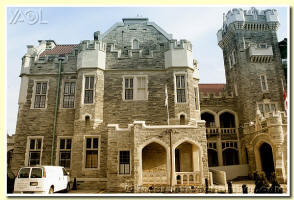
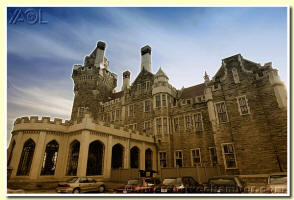
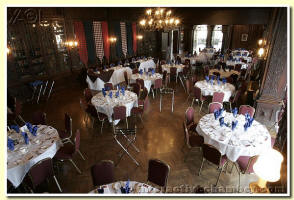
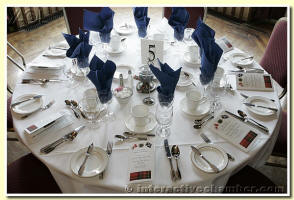
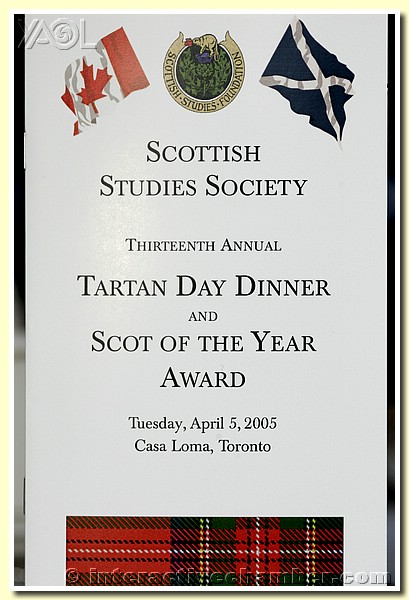
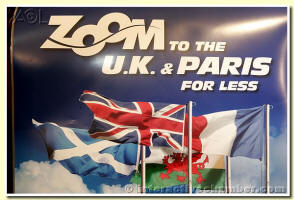
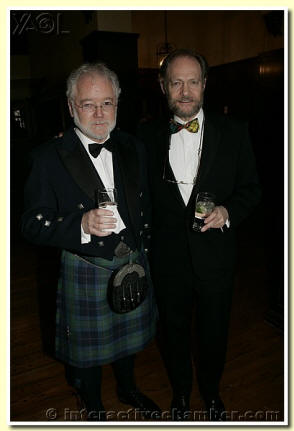
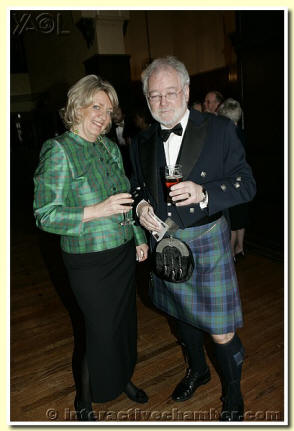
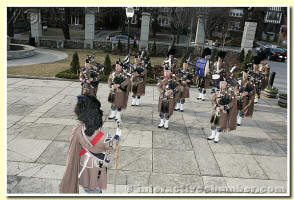
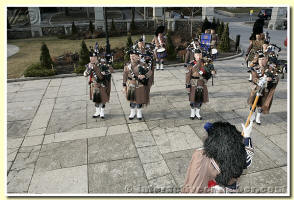
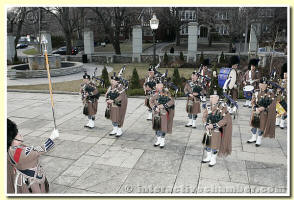

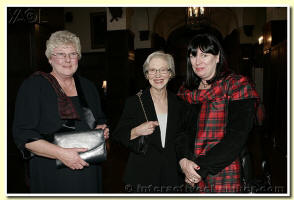
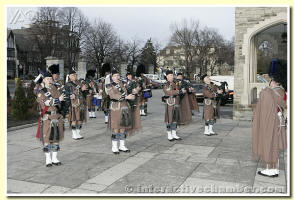
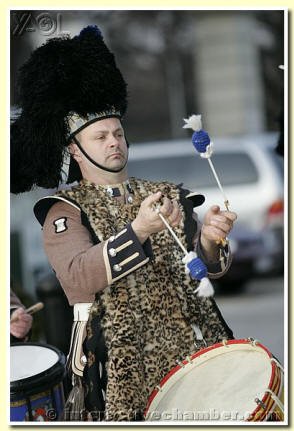
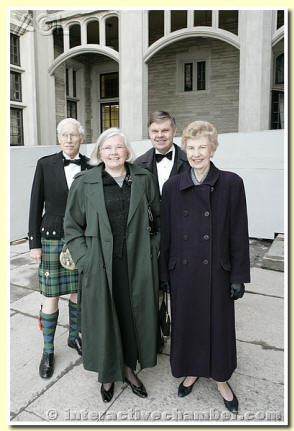
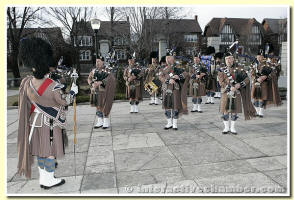
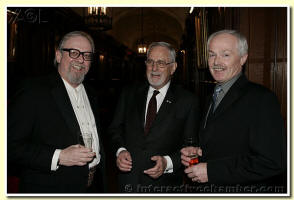
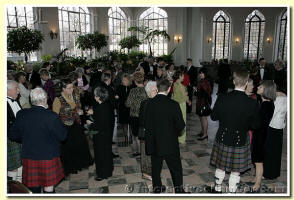
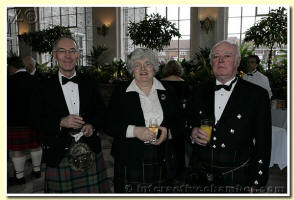
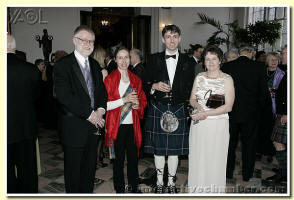
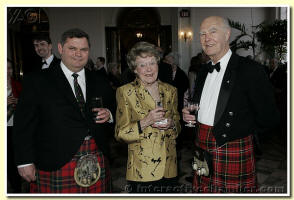
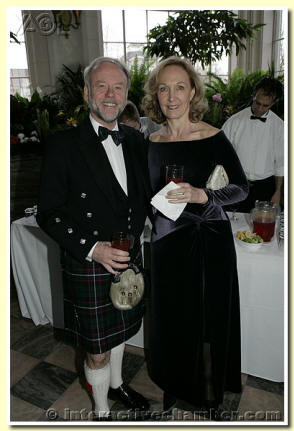
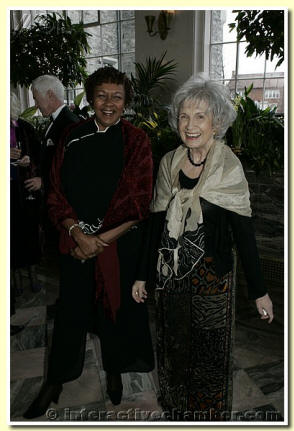
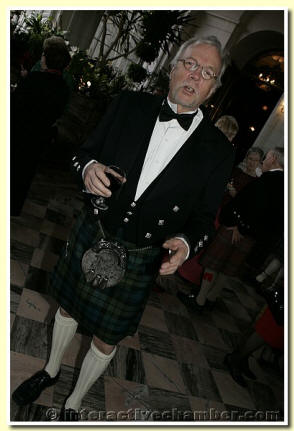
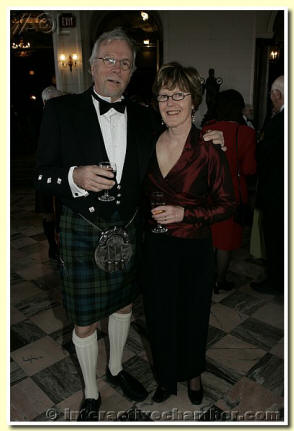
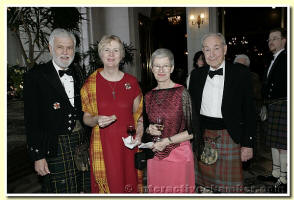
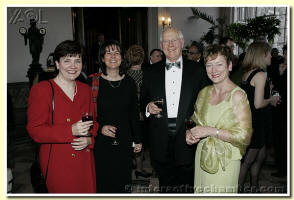
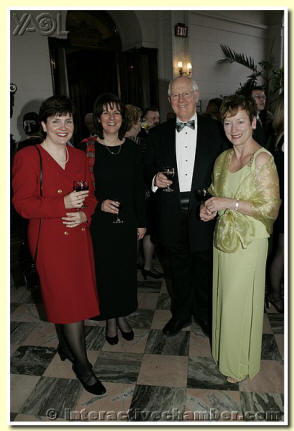
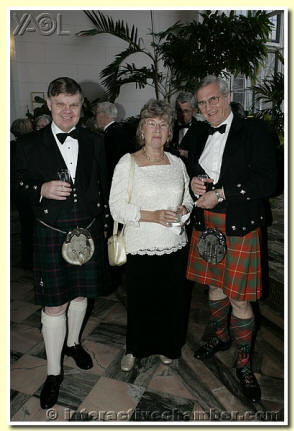
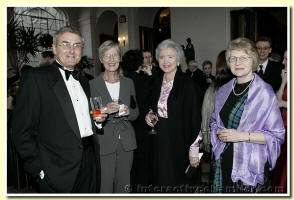
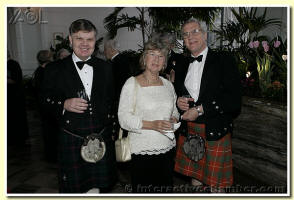
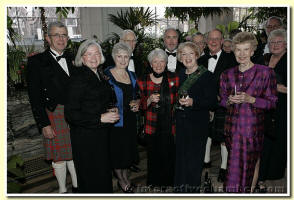
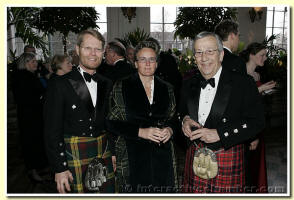
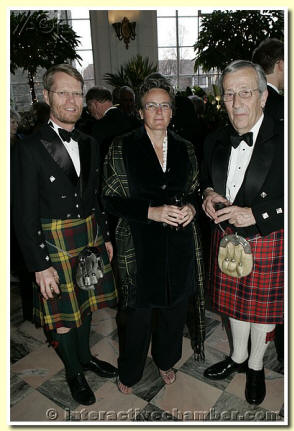
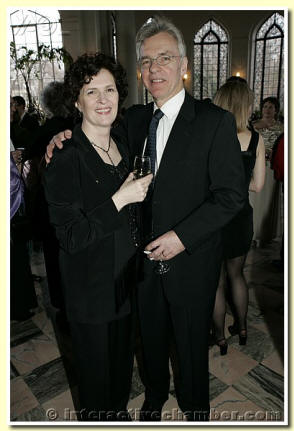
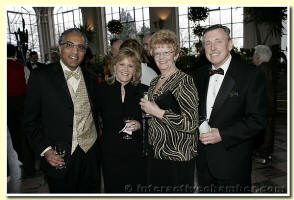
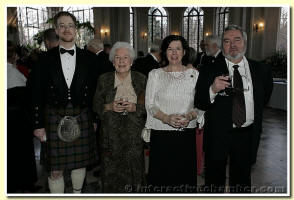
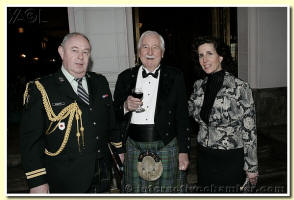
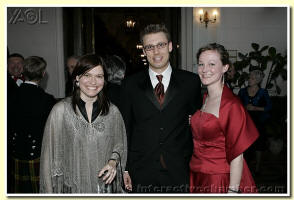
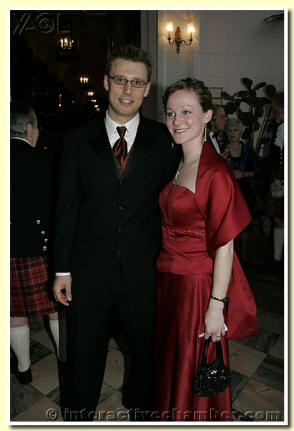
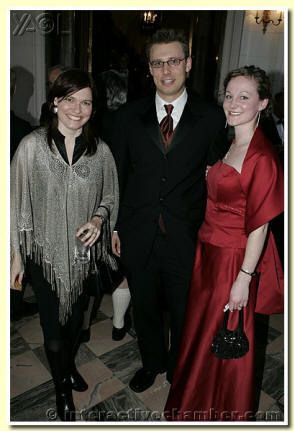
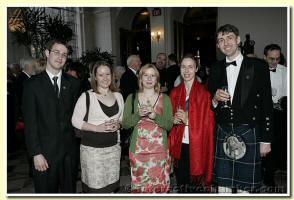
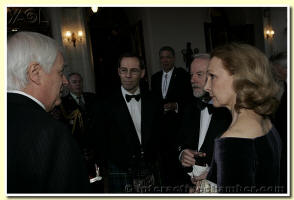
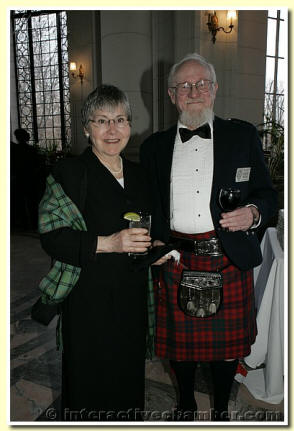
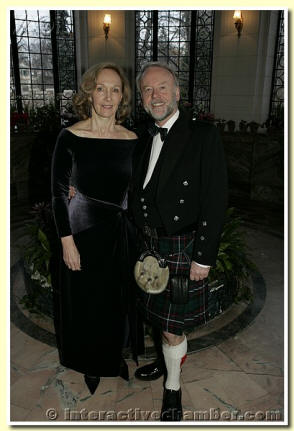
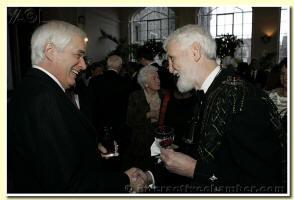
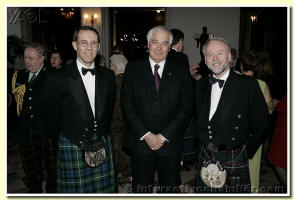
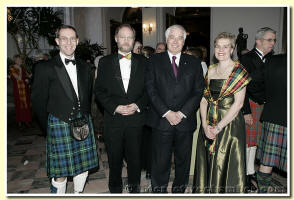
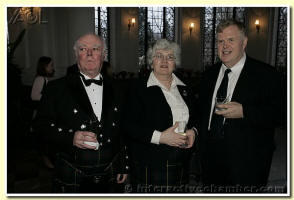
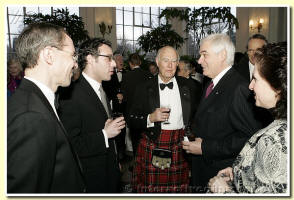
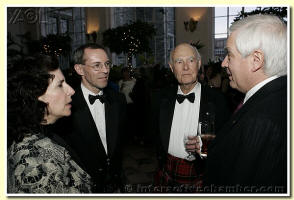
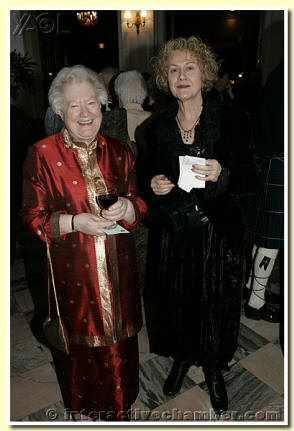
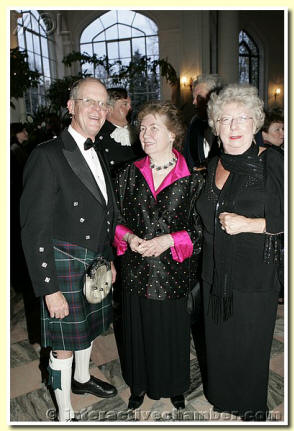
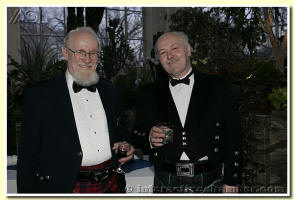
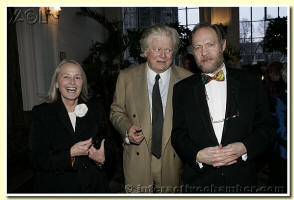
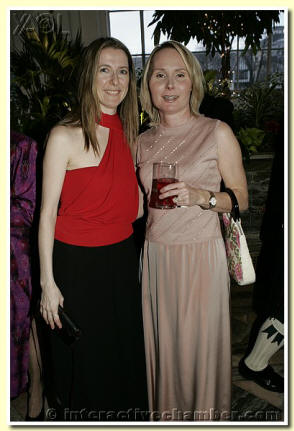
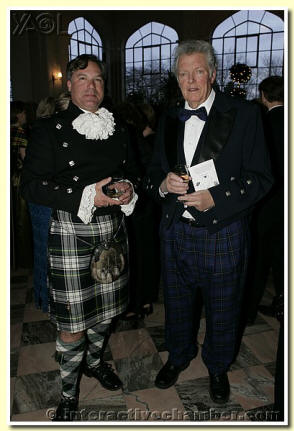
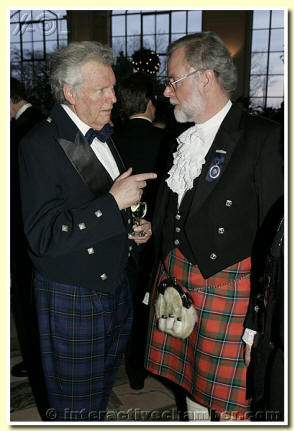
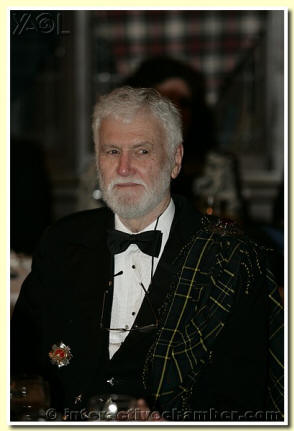
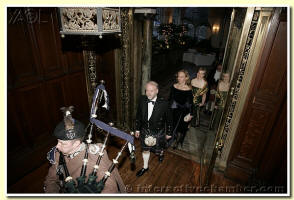
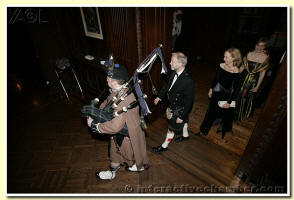
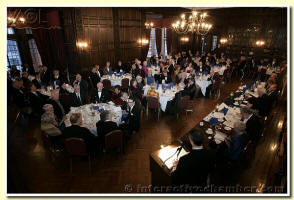
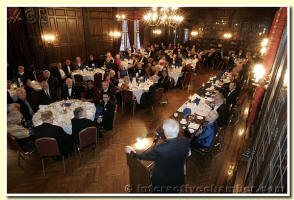
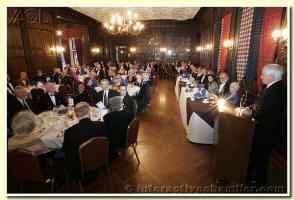
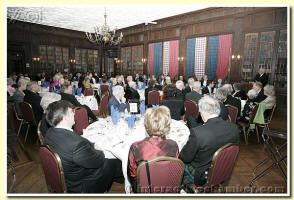
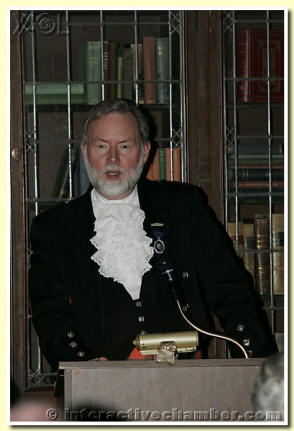
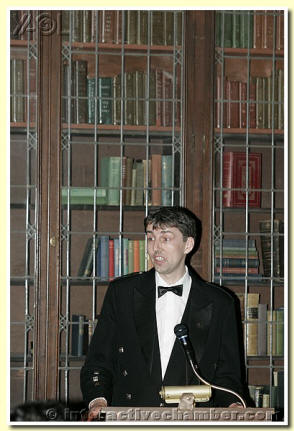
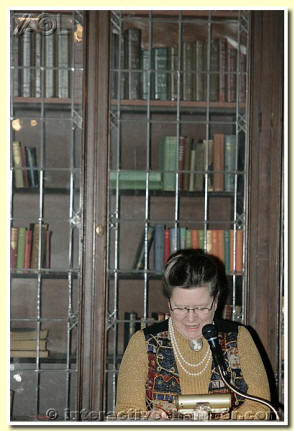
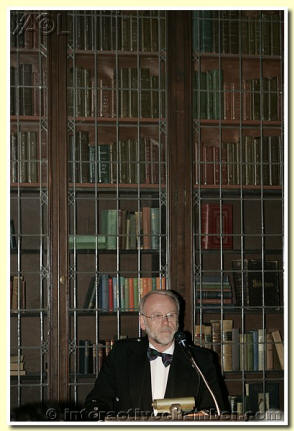
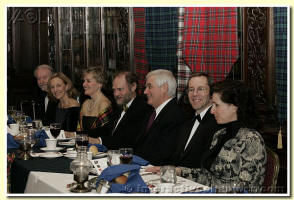
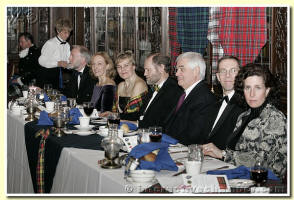
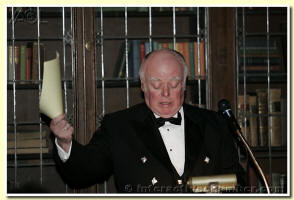
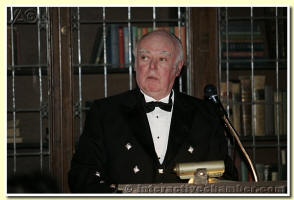
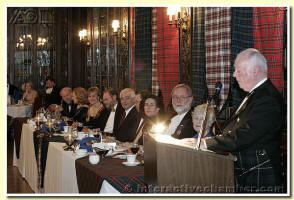
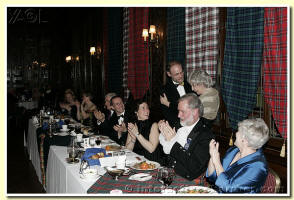
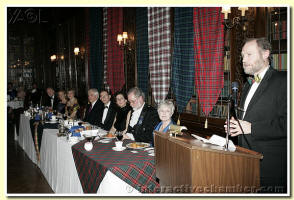
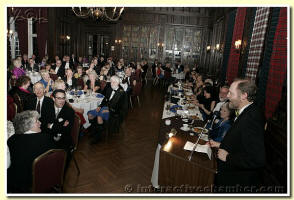
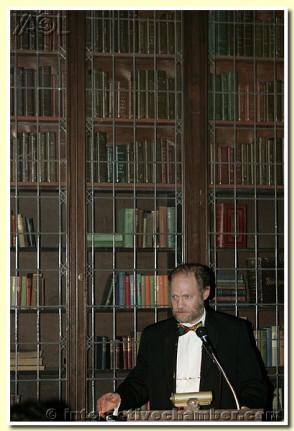
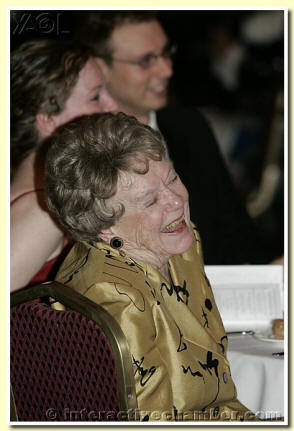
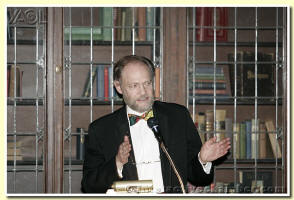

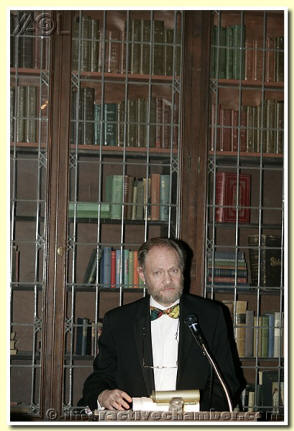
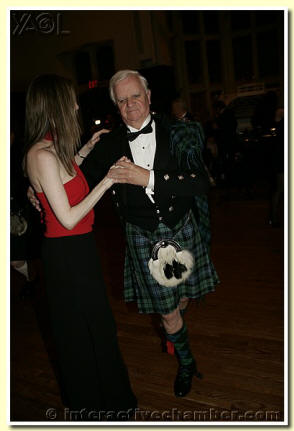
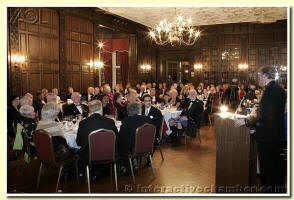
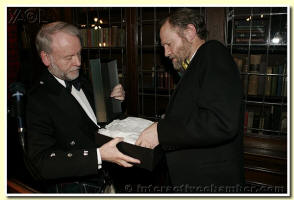
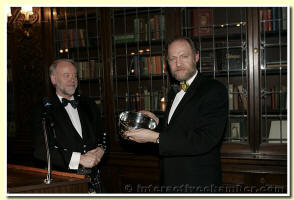
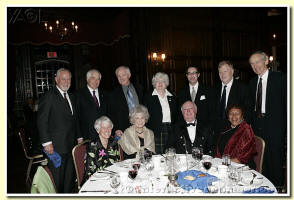
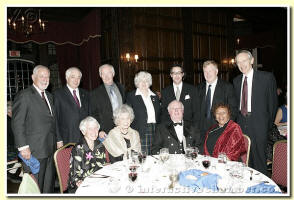
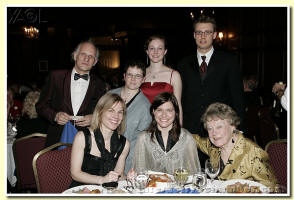
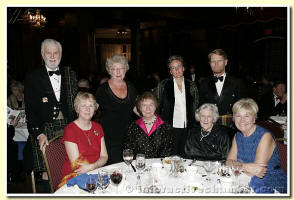
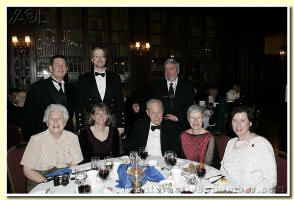
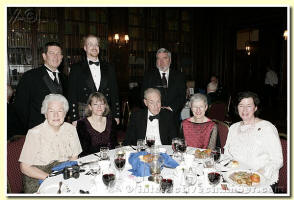
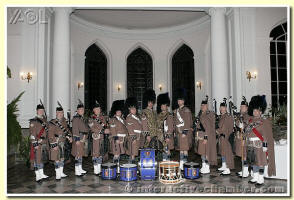
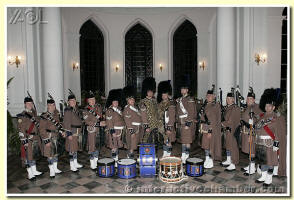
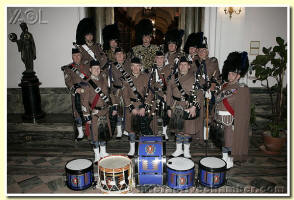
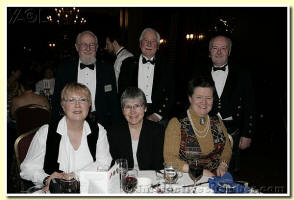
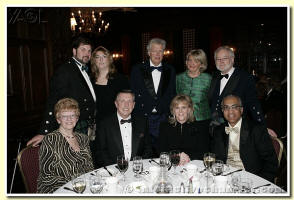
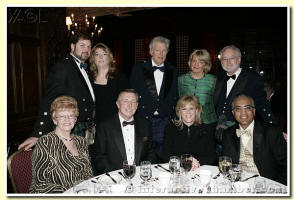
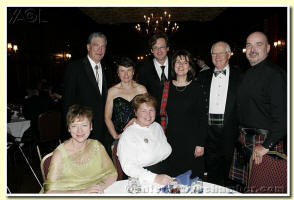
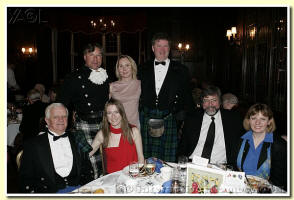
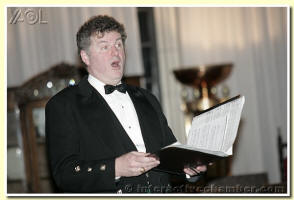
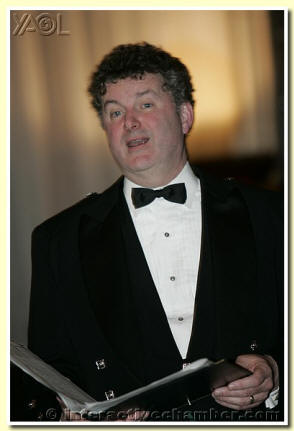
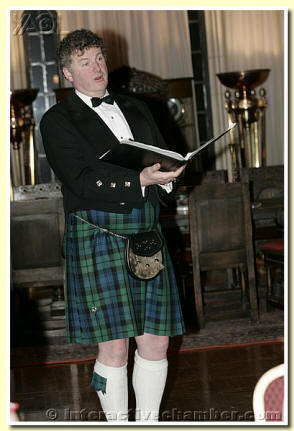
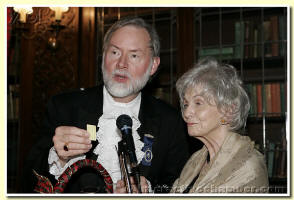
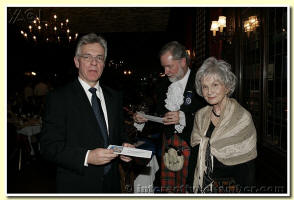
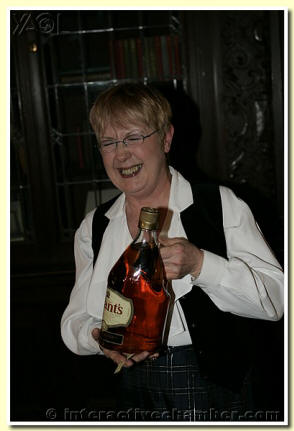
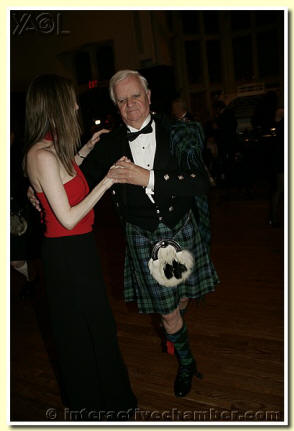
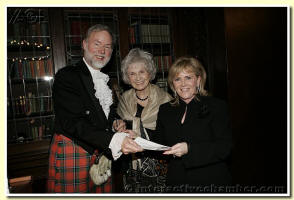
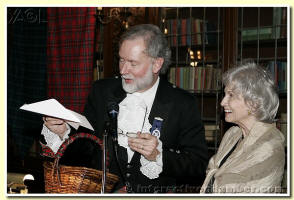
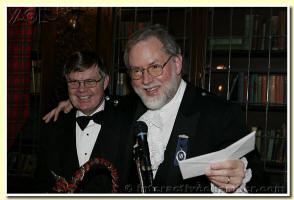
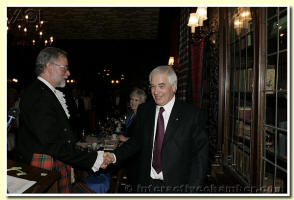
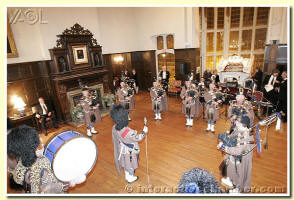
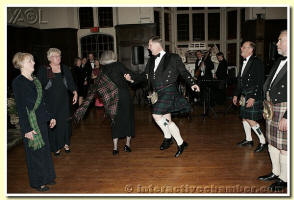
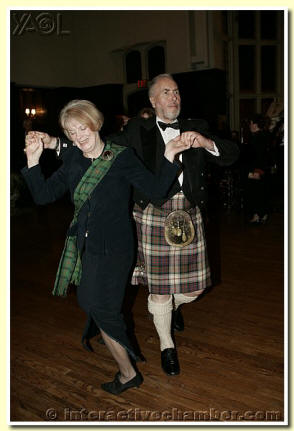
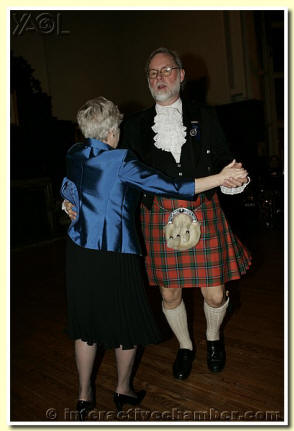
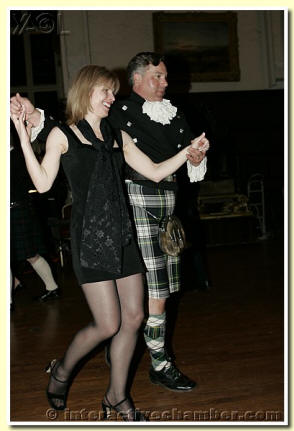
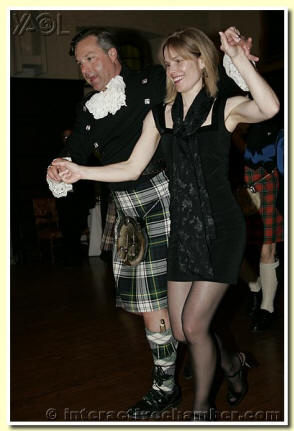
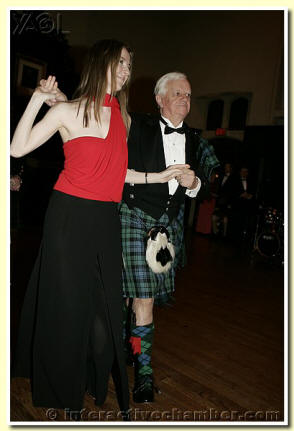
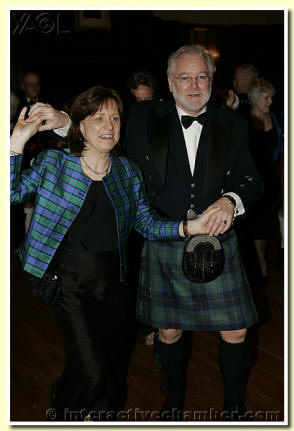
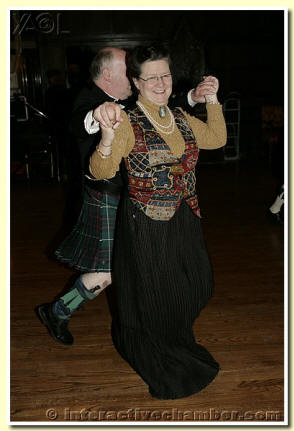
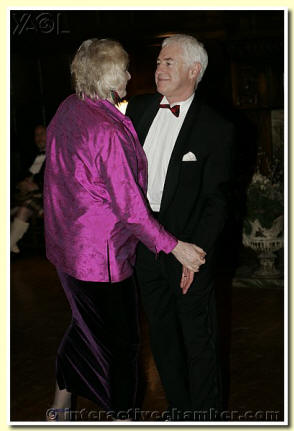
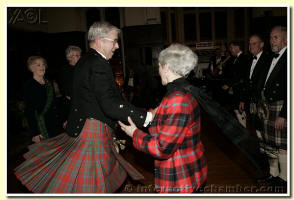
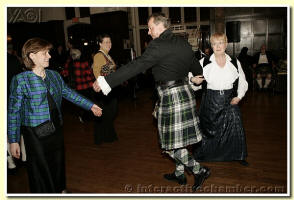
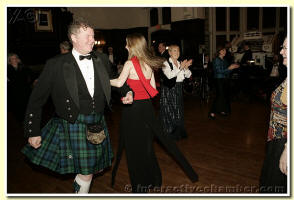
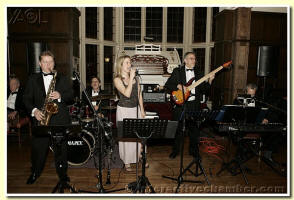
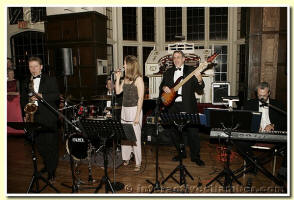
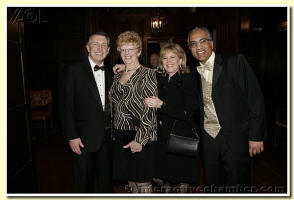
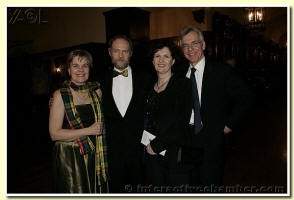
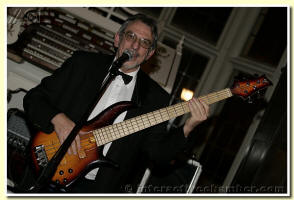
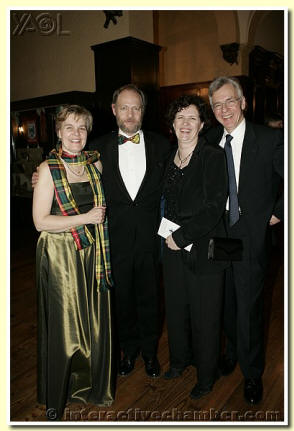
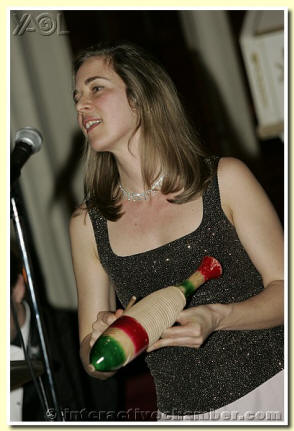
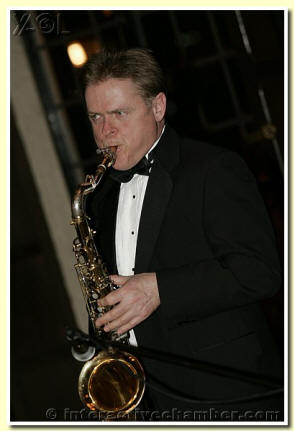
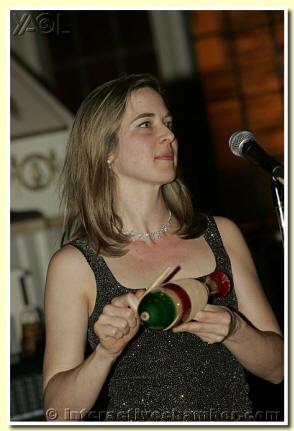
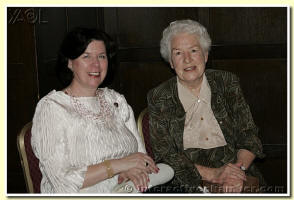
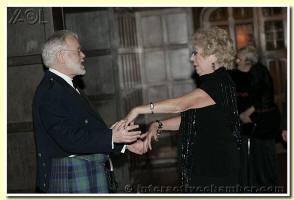
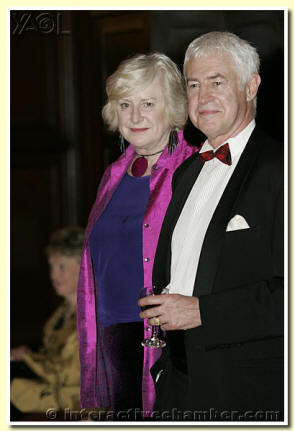
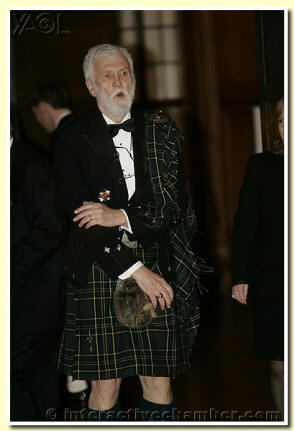
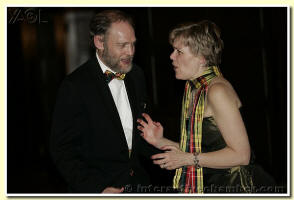
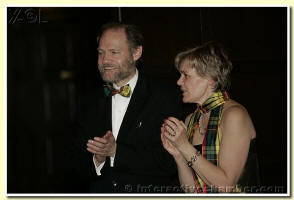
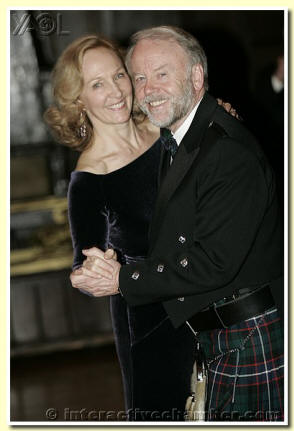
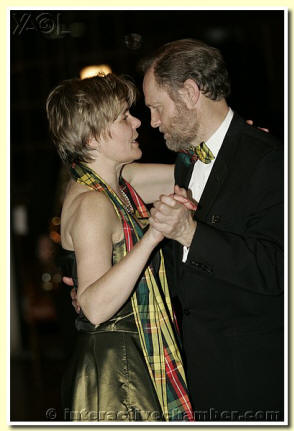 |

